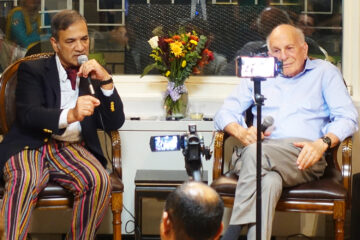Robert D. Hershey Jr. in the New York Times:

Daniel Kahneman, who never took an economics course but who pioneered a psychologically based branch of that field that led to a Nobel in economic science in 2002, died on Wednesday. He was 90.
His death was confirmed by his partner, Barbara Tversky. She declined to say where he died.
Professor Kahneman, who was long associated with Princeton University and lived in Manhattan, employed his training as a psychologist to advance what came to be called behavioral economics. The work, done largely in the 1970s, led to a rethinking of issues as far-flung as medical malpractice, international political negotiations and the evaluation of baseball talent, all of which he analyzed, mostly in collaboration with Amos Tversky, a Stanford cognitive psychologist who did groundbreaking work on human judgment and decision-making. (Ms. Tversky, also a professor of psychology at Stanford, had been married to Professor Tversky, who died in 1996. She and Professor Kahneman became partners several years ago.)
As opposed to traditional economics, which assumes that human beings generally act in fully rational ways and that any exceptions tend to disappear as the stakes are raised, the behavioral school is based on exposing hard-wired mental biases that can warp judgment, often with counterintuitive results.
More here.
